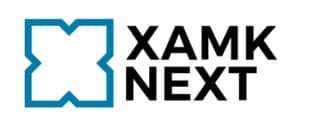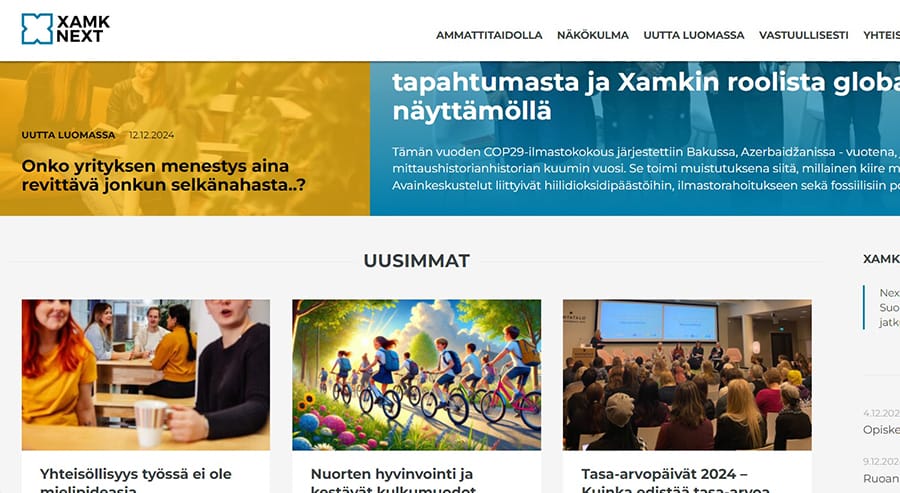Continuous development of the quality management system
 Quality management and quality assurance at Xamk are based on our strategy. Well-organised evaluation and improvement of quality enable efficient operation, good results, satisfied stakeholders and positive social effects.
Quality management and quality assurance at Xamk are based on our strategy. Well-organised evaluation and improvement of quality enable efficient operation, good results, satisfied stakeholders and positive social effects.
Our objective at Xamk is to promote a participatory and open quality culture and encourage an attitude of continuous development among the staff and students alike. We want to develop our quality management system to produce knowledge and operating models to support dynamic, proactive and experimental activities.
Aiming for a quality stamp in the autumn audit

In 2019, we prepared for the national audit to be carried out at Xamk by FINEEC in autumn 2020. The staff, students and partners in business life all participated in the preparations. We have reviewed processes and instructions, shared our views of joint working methods and analysed our strengths as well as areas that need to be worked on. Following the analysis, we immediately started to improve some of these areas.
The audit and the quality stamp awarded for a successful audit demonstrate the efficiency of the quality management system and the high quality of work. The quality stamp indicates that the quality of our work meets the criteria for higher education specified by the Finnish Education Evaluation Centre and the European recommendations for quality management at higher education institutions.
In 2019, we strengthened the focus on quality in our personnel’s everyday work. In our description of quality management, we emphasise the fact that self-development and small everyday improvements of work are an important element of quality. To support the personnel’s participation in quality improvement, we asked them to make proposals and suggest ideas for development in the latter part of the year. We received 29 proposals, three of which led to action. A bonus was paid for these new ideas. This year again, we will invite proposals and ideas for development from the personnel.
Valuable feedback from students and employers
In 2019, the student-centred approach of our quality management system was broadly discussed. In addition, we discussed gathering feedback from our employer partners and considered how the ways we use the feedback can be improved. We received a lot of feedback from different stakeholders.
In addition to receiving proposals for improvement, the feedback showed that the quality of work at Xamk is high. According to the feedback, 97 per cent of undergraduates who started at Xamk in the academic year 2019–2020 are also planning to graduate from Xamk, and the figure for postgraduate students is 100 per cent.
All our partner companies that were interviewed in connection with various campus events were willing to continue our co-operation. The companies were most interested in co-operation in student recruitment and participation in education in the form of visits and lectures.
According to the results of the workplace community development survey, 82 per cent of our employees think that Xamk is a good place to work.
Quality management system provides support during change
Our work and working environment are changing. Internationalisation, increased online studying and teleworking, changes in the competence requirements of work and the shift of attention from the results to the effectiveness of work are examples of the changes that are already part of our everyday life.
The purpose of the quality management system is to provide evaluation and feedback information during change and tools for implementing changes and development measures. It is our challenge to create operating models and tools that enable proactive and experimental work and development of new competence. Successful models support the implementation of our strategy and respond to our stakeholders’ needs.




